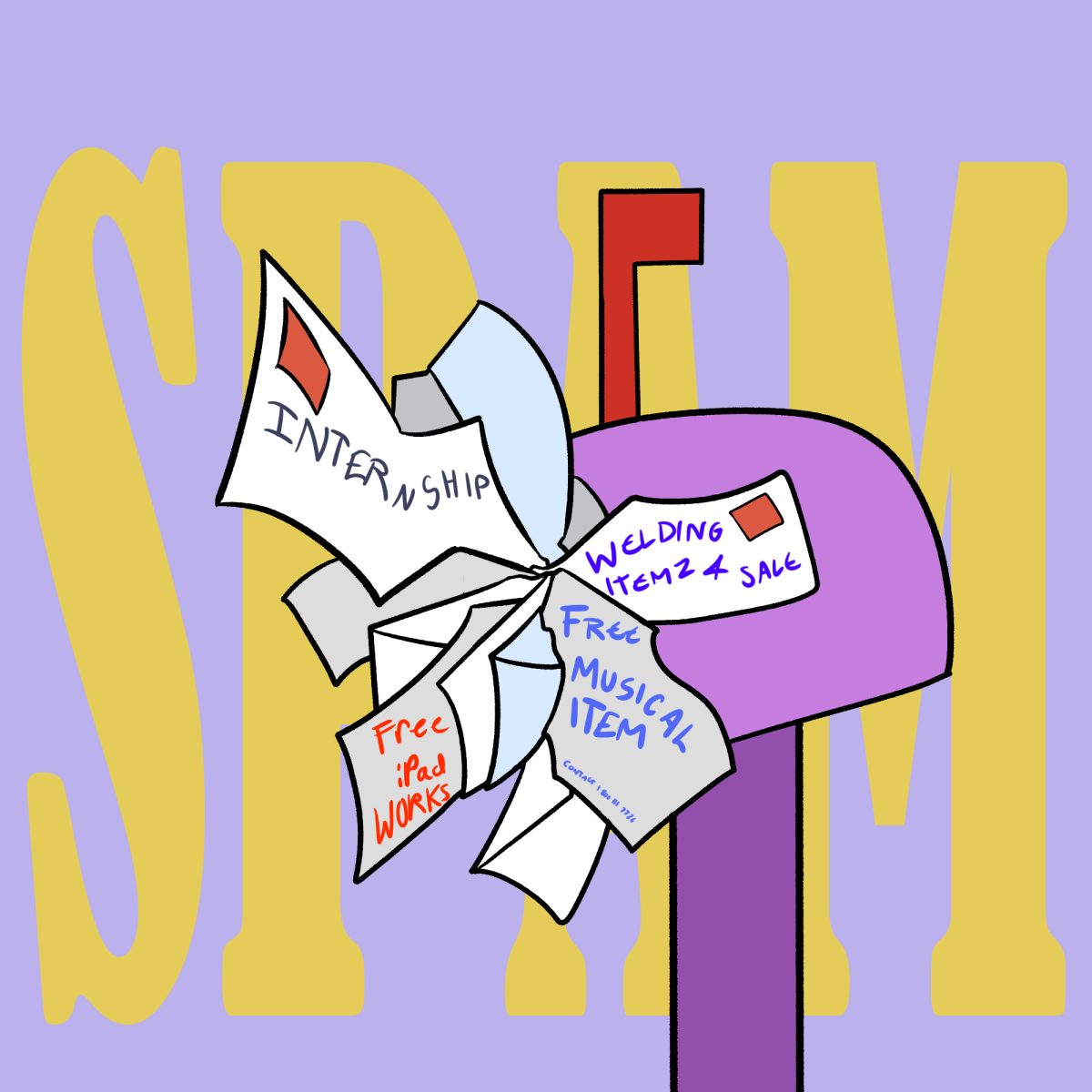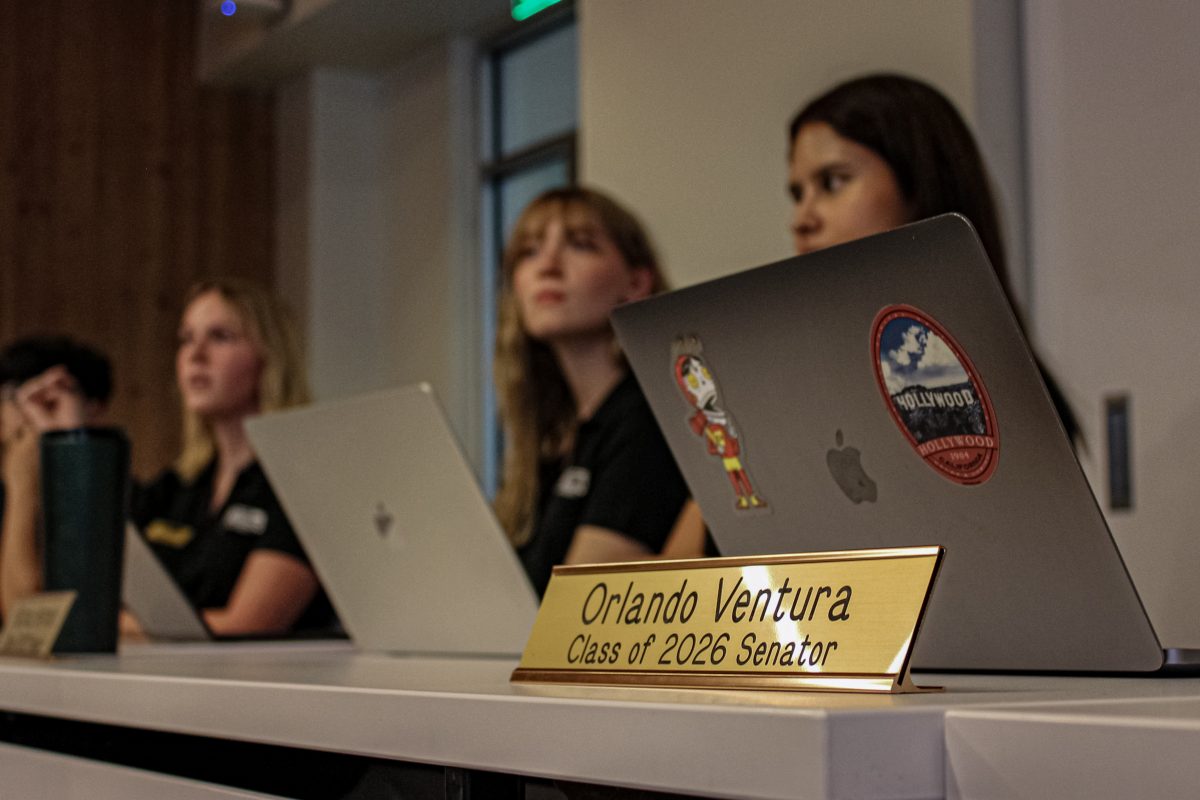The 1869 Scholars Program pairs alumni with students to help them develop essential professional skills for their future careers and college studies. It is currently funded through the Network for Vocation in Undergraduate Education grant (NetVUE) from the Council for Independent Colleges. It will run through May 2019, when the grant expires.
The program was kicked off in the summer of 2016 with a trial group and was followed by a pilot program in Spring 2017. Trinity faculty members such as Experiential Learning director Jacob Tingle, Student Involvement director Jamie Thompson, former Resident Life director Melissa Flowers and Career Services director Twyla Hough — all of whom are alumni — met for approximately two years to develop the program. This academic year was the first official year the program was in place.
To get involved, students fill out an online application. As part of the application process, students must submit a resume and two samples of their written communication skills — one that provides a biographical summary of their educational background, professional experience and other academic qualifications or activities, and one that serves as an introduction to a potential employer.
A student is chosen for the program based on these samples and on the student’s resume. On the webpage for the program, there are multiple resources available to assist with being accepted into the program such as a resume guide, a cover letter guide and LinkedIn profile resources.
Those who are of the chosen 120 applicants are assigned to a certain track depending on their year. Sophomores are placed in the vocation track, juniors are placed in either track depending on their curricular experiences and application responses, and seniors are placed in the skills articulation track to further prepare them for post-graduate opportunities.
Each track involves being partnered with an alumni mentor. However, students in the vocation track are paired with mentors who may or may not be specialized in the same field they are studying.
“This is intentional as we want students to be able to think outside of the box as they explore open-ended questions,” said Jamie Thompson, director of Student Involvement.
According to Jamie Thompson, skills articulation track participants will be matched with an alumni that specializes in the same field next year. Although this will mean the alumni mentor recruitment will take place after interested students are identified, this will help the mentors assist the graduating students with networking, advice and more.
To train to be a mentor, recruited alumni participate in a nearly hour-long webinar. The content of the training includes a program overview, information and expectations about the two tracks, what the mentors can and cannot do and time for a question and answer session.
The program focuses on developing eight specific skills: effective communication, engaged citizenship, teamwork, problem solving and innovation, planning and organization, information literacy, digital literacy and quantitative reasoning. Academic Affairs and Student Life decided on targeting these skills after researching the Pathways curriculum, the Trinity alumni survey, the National Association for College Employers skills, among other things.
“The program doesn’t teach the skills. Rather, participants in the skills articulation track are expected to make direct connections between their experiences at Trinity and these skills,” Thompson said. “One of the activities includes story-telling. The student shares a narrative, such as one would do in response to a behavioral interview question, and the alumni mentor provides feedback.”
Activities that are used to help hone these skills in the vocation track’s curriculum include: discussing the importance of personal values and goals, watching Ted-talks and discussing the role failure plays in success, creating a “wandering map” that illustrates the connections between the mentee’s experiences and vocational possibilities and generally developing trust between the mentor and mentee.
The skills track focuses more on preparing the student for interviews and developing effective communication skills. Some activities include conversing with the mentor about curricular experiences and skills built from them and exploring which skills are most relevant to the student that employers are looking for in new hires.
“Due to the large response last fall, we are doing early applications beginning next week and ending in mid-May,” said director of Career Services Twyla Hough. “More information will be posted in LeeRoy, on the CELCS Facebook page and through other sources.”
The Trinitonian contacted Laura Kalb, the interim assistant director for Coaching and Professional Development. She said out of 32 respondents, 84.4 percent agreed that their mentor experience was positive, 90.7 percent agreed that their mentor provided support and encouragement, and 78.2 percent would be interested in participating in the program as an alumni in the future.
“The response from to the 1869 Scholars program has been overwhelming. With nearly 70 students and 70 alumni participants in 2017-18, I know 1869 Scholars has had a positive impact on alumni and students alike,” said Jacob Tingle, director of Experiential Learning.
The deadline for spring applications is May 4th.








